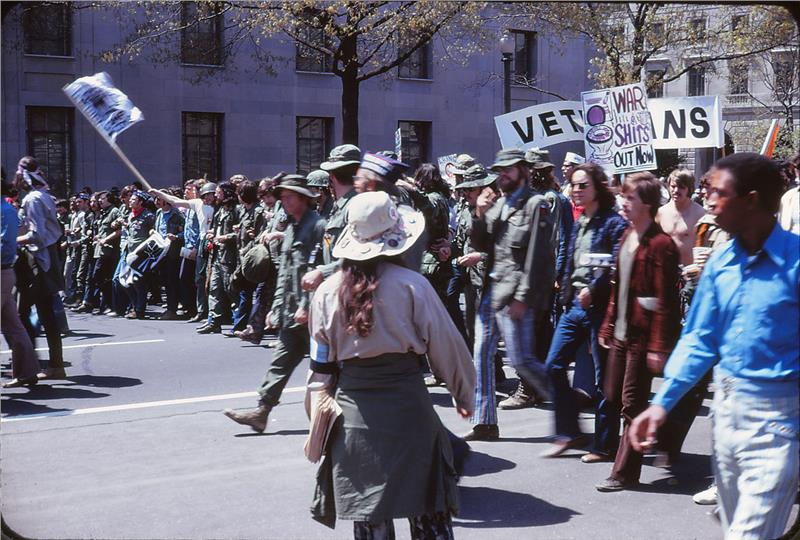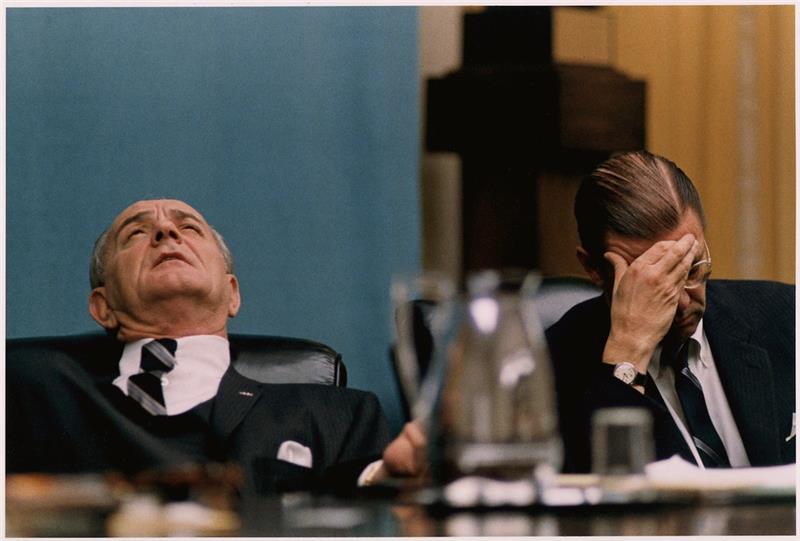When the United States escalated in Vietnam War, a large number of anti-war movements of Americans emerged to prevent the participation of the U.S in Southern Vietnam. From 1967, the war was gradually opposed to the public opinion. Polarization between pro-war and anti-war people occurred in the United States. By 1970, a third of the U.S population believed that the American had not follow the failure of the French and made a mistake by escalating war in Vietnam.
During this time, approximately a third of the American was strongly against the war and believed that the U.S armed forced would be defeated by communism. The development of anti-war groups and their reasons for these actions were possibly specified certainly. There were many reasons for against the war. Many students took part in anti-war movements as they were being drafted, while others were against the war because the development of these anti-war movements was on the rise in the counterculture and drug culture in the social life and music in America. A number of supporter in the anti-war movement advocated a one-sided withdrawal of U.S forces from Vietnam. By virtue of withdrawing from Vietnam, the tensions in the country and human loss would be lessened significantly. The inspiration of opposition to U.S involvement in Vietnam War in early phase was driven from the Geneva Conference in 1954. The U.S action of backing Diem regime and disagreeing national elections across Vietnam was seen as a way that curbing the development of democracy and communism that America argued to be supporting. At that time, John F. Kennedy, as Senator (later president) protested involvement in Vietnam.

The U.S anti Vietnam War movement had the purpose of connecting groups which were against U.S anti-communism and imperialism, and uniting people who involved with the New Left such as Catholic Worker Movement. Stephen Spiro was one of the typical opposition which depended on the theory of Just War to conduct movement against the war. Some people in oppositions of against the war like Norman Morrison emulated the actions of Thich Quang Dai to show their solidarity with Vietnamese people. In addition, an argument between McGeorge Bundy and Hans Morgenthau was given in a key televised debate from May 15, 1965 implemented by Eric Severeid who was working for CBS. This debate dealt with a deeply perceptive summary of the main issues in the war concerns of the U.S. These concerns included “(1) What are the justifications for the American presence in Vietnam -- why are we there? (2) What is the fundamental nature of this war? Is it aggression from North Vietnam or is it basically, a civil war between the peoples of South Vietnam? (3) What are the implications of this Vietnam struggle in terms of Communist China's power and aims and future actions? (4) What are the alternatives to our present policy in Vietnam?”

With the purpose of changing the political opinion of the U.S government, high-profile movements to against Vietnam War operated as street protests. On October 15, 1969, the Vietnam suspension appealed millions of Americans. During the anti-war movements, uprisings emerged at the 1968 Democratic National Convention. After the news reports of the U.S military abuses exploded, such typically as the 1968 My Lai Massacre, and then movements against the war received a lot of new attention and support, Vietnam Veterans Against the War witnessed the participation of some veterans. The year 1970 also saw the fatal shooting of four students at Kent State University, which triggered university protests nationwide. After the Paris Peace Accords were signed in 1973, movements against the war concluded with the final troops withdrawing.
